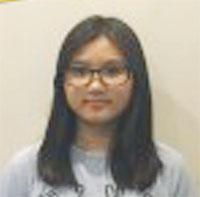
Grace Baek / Portola 12th Grade
Hollywood’s lack of diversity is not a new discussion and the history of Asian Americans in cinema is bleak.
Asian actors were often pigeonholed into narrow and limited roles that rarely reflected their actual experiences and instead serviced white stories or stereotypes.
For example, actor Randall Park played the role of a doctor several times in his career, including Curb Your Enthusiasm and The Bold and the Beautiful.
“The roles weren’t super offensive,” says Park. “But when you look back and realize how many doctors you play, you think, O.K., that’s how they see us.”
The disparities are worse for Asian women in particular, who have often been flattened into two-dimensional characters lacking agency or written as sex objects, whether stereotypically submissive or cunning. In Sex and the City (1998), an Asian housekeeper was looking to sabotage her male boss’s relationship for her own sexual gain. The Lotus Blossom trope, which symbolizes feminine, shy, fragile, and sexually submissive characteristics, is epitomized in Miss Saigon (1989) and Memoirs of a Geisha (2005).
This conception of Asian women has been deeply rooted in American history, dating back to 1875 when the immigration of East Asian women was prohibited as they were seen as prostitutes and bearers of disease.
Nonetheless, gradual change has been taking place in Asian American storytelling all across film and television. Over the past decade, Asian Americans have become directors, producers, and showrunners, forming tight-knit groups to champion each others’ stories.
Thus, as a new wave of stories arrives, Hollywood is shifting away from what Asian-American actor Awkwafina calls “the mirage of diversity” and more towards lasting forms of representation.
From The Farewell (2019) to the Japanese-American internment-camp horror series The Terror (2018), Asian stories are being portrayed in a more authentic light than ever.
Films and series starring Asian women as protagonists, such as Crazy Rich Asians (2018), To All The Boys I’ve Loved Before (2018), and Never Have I Ever (2020) reveal fresh perspectives without reinforcing harmful stereotypes.
“While it is important to have a wider variety of Hollywood and media depictions of Asian Americans, greater representation and visibility is not the solution to racism,” associate professor of communication studies Dr. Stephanie Young said.
“We need to critically examine the ways in which the ‘model minority’ rhetoric is problematic.”
This representation in Hollywood is crucial to shaping narratives that bleed into reality, and further humanizes the diversity of Asian experience beyond the screen.
<
Grace Baek / Portola 12th Grade>

